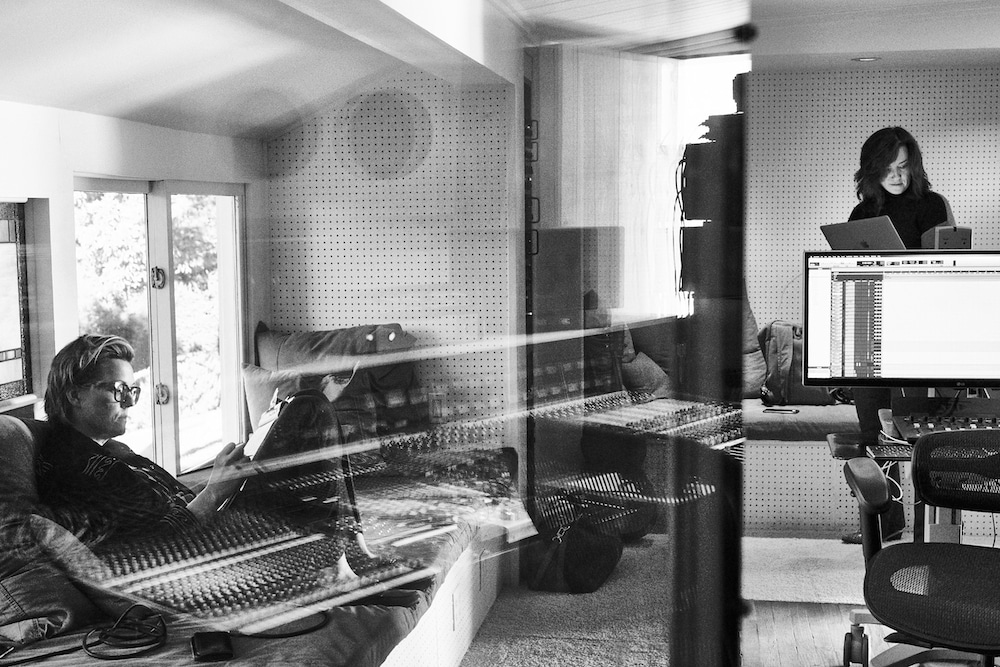Brandy Clark has arrived.
Though the Grammy-winner has always prioritized authenticity and honest narratives in her music, she’s lately found herself diving into an even deeper level of vulnerability in her songs. On her latest full-length release, the self-titled Brandy Clark, the singer-songwriter uses that vulnerability to fully step into her own artistic identity, maybe truly believing in it for the first time thanks to the collaborative influence of another Grammy-winning artist, the one and only Brandi Carlile.
“I think really the thing that took it over the top was working on this record with Brandi Carlile,” Clark told The Creek’s Sam Stephens in a recent phone chat.
“And I had always been a little nervous about working on a record where another artist is the producer, because I had it in my head, ‘oh, you know, you just end up making their record.’ But really, Brandi [Carlile] pushed me to make my record in a way I’ve never been pushed. When we went through and picked songs, her selection, I gave her probably 24 songs. I always do that with a producer. Some of her choices surprised me, but in a good way. I was really happy. I said, ‘Why did you choose the songs you chose?’ Because I was shocked that she would choose a song like ‘She Smoked in the House.’ And she said, ‘I thought they were all great songs, but I chose the songs that felt like you wrote ’em in your bedroom and not a writing room.’

And that hit me because I think for me as a songwriter, you’re always trying to impress other songwriters. And I think sometimes you get away from what made you write songs in the first place, which wasn’t to be clever or to impress anybody. It was to get something out.”
For many songwriters, inspiration can come from a myriad of unexpected people and places. Take one listen to any of the tunes sitting in Clark’s vast catalogue of hits, deeps cuts, and cuts by other artists and it’s clear that her best, punch-packing work comes from the characters that draw from deep within. Sometimes, those characters are found in the world around her; but lately, Clark has been drawing from another complex character portrait: her own. And it’s liberated her creatively more than she can convey.
“When you talked about feeling like I just came over to your house and said, ‘I gotta talk…’ That’s how songwriting starts when you’re young. If I would’ve gotten nothing else from working with Brandi [Carlile], I got that. Because moving forward, those are the kinds of songs I wanna double down: sitting down and writing the ideas that feel like, ‘Man, I have to write this.’ ‘She Smoked in the House’ is a great example. I had to write that ’cause I was missing my grandma.
And so, you know, I think as an artist, that’s my responsibility because what I have found with that song, so many people come up to me and say, ‘Man, that was my mom.’ ‘Oh, that was my grandma.’ I think that is why it’s so vulnerable.”
I’ve always written a good amount of vulnerable songs, but I do think that Brandi wanted to get to the truest sense of who I am as an artist. And I think she did a really good job of that. When we got in the studio, she would push me to have vocals like ‘Buried’ that felt very exposed and imperfect. But she’d say, ‘No, that’s it!’ And so I think it took another artist to get to the truest part of the artist’s heart of me.”
And what a gift that has been for Clark and will continue to be. The self-awareness Carlile pulled out of Clark is not only the measure of a great collaborator, but also the measure of a great friend and mentor. After all, the ones who love and respect us most are often the only ones who can really see the untapped potential that lies deep within, in Clark’s case the ability to truly see herself and move through the world as the brilliant artist that she is.
“I started out as writing songs for others for so long that it’s been a journey for me to become my own artist. And I think it took this record to fully step into that. She’d said another thing, you know, she wanted me to make some lyrical changes, specifically on ‘Buried’ that would make it more just ‘me.’ And I was really struggling with that because as a songwriter, I typically don’t like it when artists do that to my songs, you know? And I said to her, ‘I have a hard time because a lot of these songs are co-written. Most of them are co-written. And I wanna be respectful of my co-writers.’
And she said, ‘That’s really, that’s really admirable and I love that you feel that way.’ I said, ‘I always try to be in service to the song.’ And she said, ‘That’s great, but I think this time you need to be in service to the artist.’ That was another powerful thing that she said to me. And she was right.”
